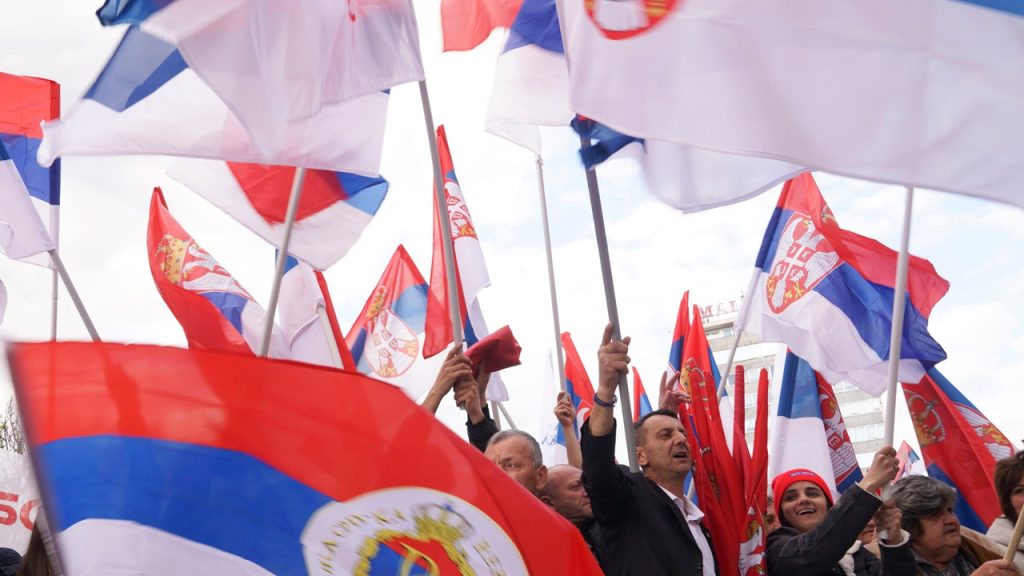Thousands of Bosnian Serbs gathered in Banja Luka to deny that genocide was committed in Srebrenica in 1995, despite rulings from two United Nations courts stating otherwise. More than 8,000 Bosniak Muslim men and boys were executed by Bosnian Serb troops in July 1995, their remains dumped in mass graves. International courts have labeled the massacre in Srebrenica as genocide, the first in Europe since World War II. Bosnian Serb leader Milorad Dodik dismissed the massacre as a “mistake” and a “huge crime”, but not genocide, sparking protests against a draft U.N. resolution commemorating the genocide supported by Bosniak politicians.
The draft U.N. resolution is vehemently opposed by Bosnian Serbs and neighboring Serbia, fearing it would brand them as a “genocidal nation”. The Serbs are backed by Russia and China, while genocide denial is punishable by Bosnia’s own laws. The Bosnian Serb parliament approved a report denying the Srebrenica genocide, demonstrating their resolve to separate from the rest of the country if the resolution is passed in the U.N. General Assembly. The country is ethnically divided, with Bosnian Serbs controlling about half of Bosnia and vehemently opposing the notion of living in the same state as Bosniaks.
Despite facing U.S. and British sanctions for his separatist actions, Milorad Dodik remains staunchly pro-Russian, defying Western influence by traveling to Russia and meeting with President Vladimir Putin. In his speech at the rally, Dodik expressed support for a potential victory by former U.S. President Donald Trump, hoping for “different conditions” in which they could operate. The rally was attended by Serbia’s parliament speaker and outgoing Prime Minister, Ana Brnabic, showing solidarity with the Bosnian Serb cause in denying the Srebrenica genocide. Dodik declared his allegiance to Russia, ending his speech with the phrase “Long live Russia!”
Bosnia has remained politically tense and ethnically divided since the end of the 1992-1995 war, hindering its efforts to seek European Union membership. The country is deeply polarized between Bosniak Muslims and Croats on one side, and Bosnian Serbs on the other, with the threat of a potential split looming if the contentious U.N. resolution is passed. The situation is exacerbated by internal divisions and external backing, as well as the ongoing conflict in Ukraine, raising fears of instability as Bosnia struggles to navigate its complex political landscape.
The rally in Banja Luka highlights the deep-rooted denial of the Srebrenica genocide among Bosnian Serbs, despite international courts unequivocally labeling it as genocide. The refusal to acknowledge this dark chapter in history underscores the persistent divisions and tensions within Bosnia, threatening to further fragment the country along ethnic lines. As the Bosnian Serbs stand firm in their defiance of the U.N. resolution and continue to advocate for separatism, the future of Bosnia remains uncertain, torn between its aspirations for EU membership and the specter of ethnic discord that continues to plague the region.


